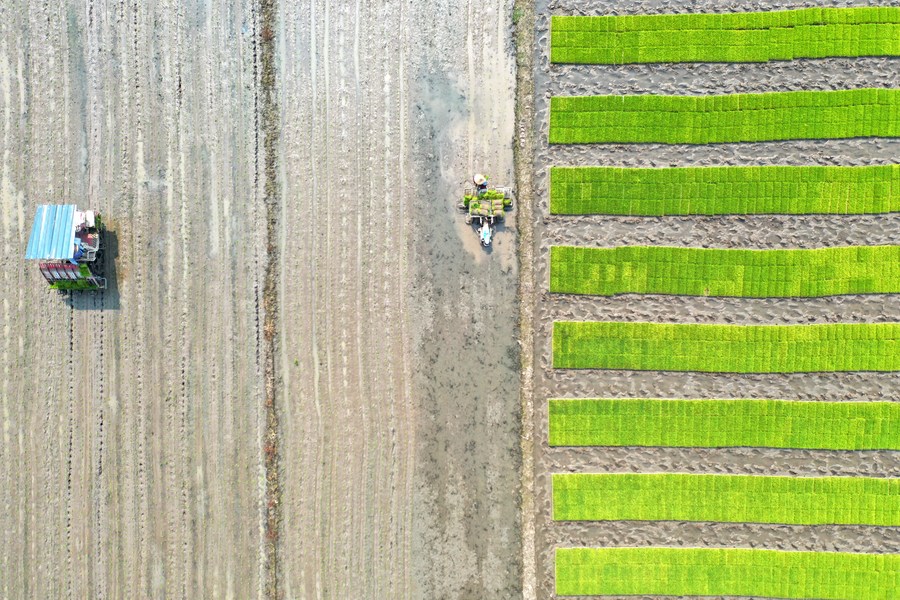Grain output to increase this year
 0 Comment(s)
0 Comment(s) Print
Print E-mail China Daily, April 29, 2022
E-mail China Daily, April 29, 2022

China's grain output this year is expected to hit 688 million metric tons, while the area sown is estimated to reach 118 million hectares, according to a report released recently by the Chinese Academy of Agricultural Sciences.
Given the implementation of a national project to expand the planting of soybean and oil crops, the area of soybeans in China will increase by 1.4 million hectares this year, and production is estimated to increase 25.8 percent, the report said.
The output of oil crops is about to increase 1.9 percent year-on-year, and pork production will see an annual increase of 2.9 percent to reach 54.5 million tons.
China Agricultural Outlook (2022-31) was released on Wednesday, analyzing the market trends of 18 major agricultural products including grain, meat, vegetables and fruits.
Wu Kongming, president of the Chinese Academy of Agricultural Sciences, said given that global agricultural production has been greatly affected by the pandemic, natural disasters and regional conflicts, the outlook in agriculture is significant to ensure China's food security and the effective supply of major agricultural products.
Xu Shiwei, secretary-general of the Chinese Agriculture Outlook Committee of the Ministry of Agriculture and Rural Affairs, said looking into the future of the agricultural sector and releasing market information of agricultural products will boost the development of the sector and promote rural vitalization.
While the capacity of agricultural production is steadily increasing, the growth in consumption of grain and pork will slow due to the economic impact of the epidemic.
The import of bulk agricultural products is declining and total grain imports are estimated to decrease by 3 percent. Imports of rice are estimated to decrease by 14.3 percent, while those of wheat will drop 29.4 percent and corn 19.5 percent. Vegetable and fruit exports will increase 16.5 percent and 11.3 percent respectively, according to the report.
The overall prices of agricultural products will remain at a high level and there will be a greater risk of drastic fluctuation, which is being affected by the dramatic rise of fertilizer costs and the Russia-Ukraine conflict.
Pork prices may remain low in the first half of this year, rebounding slightly in the second half thanks to decreasing pig production.
In the next decade, the grain producing area is estimated to stabilize at 116.7 million hectares, of which soybeans will be expanded to 13.3 million hectares, according to the report.
As the country boosts the seed industry, grain varieties are expected to be upgraded to a new generation by 2031. The country will create 80 million hectares of high-quality farmland with stable yields and advanced facilities.
By 2031, the overall grain yield is expected to increase 6.4 percent, and the soybean yield will increase 34.1 percent to reach 2.6 tons per hectare, the report said.
The output of corn and soybeans can reach 324 million tons and 35 million tons respectively, ensuring that 88 percent of grain is produced domestically.
The consumption of livestock and aquatic products will dramatically increase while that of staple grain is dropping.
The import of most agricultural products will decrease in the next decade, with corn imports expected to see an annual decrease of 6.5 percent. Soybean imports will drop 1 percent annually, it added.
By 2031, pork imports will drop to 1.2 million tons, half of the current import volume.






Go to Forum >>0 Comment(s)